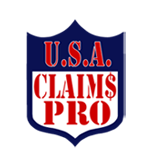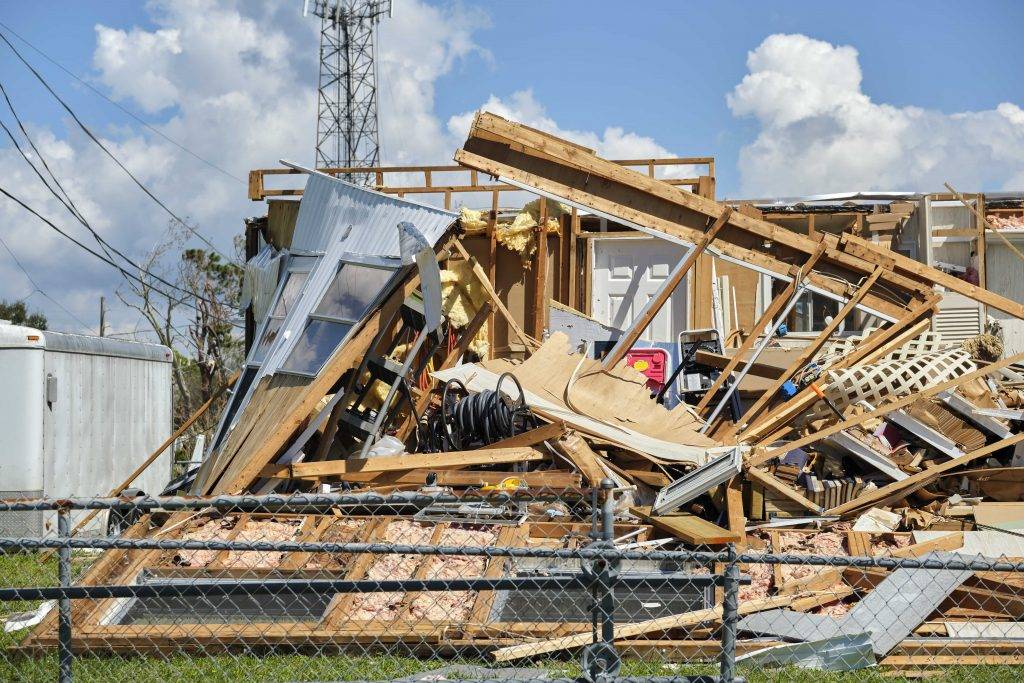Florida is well known for experiencing extreme weather, but most people only associate the state with hurricanes. So when eight tornadoes were recorded at the end of April, people in Florida were surprised.
The Panhandle was hit hard by seven tornadoes, with one described as extremely hazardous on April 29. The event struck Palm Beach Gardens half a state away with winds exceeding 100 mph; homes and businesses throughout Palm Beach Gardens were destroyed.
Florida may not be an obvious target of tornadoes due to its distance from “Tornado Alley.” Yet, it is third for annual tornado counts after Texas and Kansas (but ahead of Oklahoma), according to data provided by the National Center for Environmental Information of NOAA (the federal National Oceanic and Atmospheric Administration), Florida experiences, on average, 66 twisters each year.
Many Florida property owners underestimate the dangers and damage posed by tornadoes. You should prepare your commercial or residential property in Florida against tornadoes with equal care for hurricanes; otherwise, serious structural damage could result in your absence.
In this blog, we will provide information on both types – tornado damage insurance claims and hurricane damage claims, explain how tornado insurance coverage works, and provide expert public adjusting guidance.
Hurricane Damage and Tornado Damage: What Are Their Differences?
Tornadoes and hurricanes share many similarities. Both storms feature strong, rotating winds, which can bring down trees, roofs, or even entire homes if accompanied by heavy rainfalls, leading to even more destruction and property loss. Each tornado or hurricane storm differs significantly in how it damages property – the damage can vary drastically between locations and individuals affected.
Average hurricanes typically cover an area of 300 miles wide in tropical waters. When detected by weather radars before hitting land, their size allows them to be detected well in advance and cause massive areas of destruction once onshore. Although their rotation is theoretically noticeable from space, their spin is so minimal it often goes undetected on land; their straight-line winds reach 100 mph, creating storm surges that further exacerbate physical damage to properties.
Tornadoes form on dry land caused by thunderstorms with rotating and strong wind speeds; however, their existence cannot be detected using weather radar; instead, they must be recognized from the ground by those trained to recognize “funnel cloud” signs that indicate tornado formation. Furthermore, their unpredictable movements make predicting where they go more difficult.
Tornadoes do not usually travel as far, with even the largest reaching only 2 miles wide and boasting winds reaching 300 mph. Their spin can cause additional damage to objects and structures on land due to torsion.
Both tornadoes and hurricanes can wreak extensive destruction; however, tornadoes tend to be more devastating for localized areas than their hurricane counterparts.
Does Standard Home Insurance Policy Cover Tornado Damage?
Standard homeowners insurance policies provide coverage against tornado damage to both your structure and personal possessions, including wind, heavy rain, hail damage, and trees being knocked over. Flood damage claims, however, are not included – for that purpose, you’d require separate Flood Insurance policy coverage.
The various coverages of a homeowners’ insurance policy will cover repairs after a storm has struck your property.
- Dwelling Coverage: Dwelling coverage covers repairs or reconstruction costs associated with wind, hail, or storm damage to your house’s structure if it has been compromised during an event, such as its roof blowing off.
- Coverage for Other Structures: Repair/replacement cost coverage is designed to restore or rebuild detached structures, such as sheds or gazebos, damaged by storms, such as a tree falling onto your poolhouse or your fence being torn from its foundations.
- Coverage for personal property: Provides financial compensation if your belongings are damaged in a storm.
- Coverage for loss of use: Pays additional living expenses such as hotel and restaurant bills should you temporarily move out. At the same time, your home is repaired after a tornado has damaged it.
Undervalued Claims:
Unfortunately, just because you have insurance does not mean your insurance carrier will give you an easy-to-cash check with the amount you need.
Insurance companies operate for profit. Florida homeowners filing tornado claims often find their claims undervalued, creating serious problems when rebuilding or replacing items in their homes or belongings.
Contact a Florida Tornado Damage Claims Adjuster Now.
Fear not; we can assist. As experienced Florida public insurance adjusters, we fight daily for homeowners’ rightful compensation.
How to Appeal an Undervalued or Denied Claim
Purchasers expect their standard homeowners’ policies to cover them when faced with these unexpected situations, and we are here to assist if your claim has been denied or undervalued.
We will get you the results that are in your best interests by providing evidence and standing firm against their tactics and manipulation.
Our Florida public claim adjusting team boasts in-depth knowledge of the insurance industry. This ensures that policyholders won’t feel bullied.
-
Compare Policy Coverages
Insurance companies frequently attempt to deceive homeowners about the coverage provided by their policies.
Offenders might offer to fix only part of your roof instead of all at once.
Our Florida tornado insurance claim adjusters can review your policy in such situations and communicate directly with the insurer on your behalf.
-
Disagreements over Damage
Insurance companies may claim that your damage estimate is much smaller than expected or that all of it has already occurred.
Our Florida claim adjusters will ensure the truth is reflected accurately and any damage caused by tornadoes is covered.
-
Insurance Providers with Poor Reputations
Bad faith insurance practices involve unfair practices by insurance companies which include unfair pricing practices, delaying, underpaying or misleading policies to customers.
Our Florida public insurance adjusters can protect your rights during these trying times, if necessary, by filing a lawsuit on your behalf.
What should I do if I have already submitted a Florida Tornado Insurance claim?
We can assist if you have filed a Florida insurance claim in the past and, additionally, if your insurer has offered an inadequate claim settlement offer to settle it.
What is the best way to prepare for a Florida Tornado damage claim?
In the event of tornado damage to your property or business, notify your insurance agent immediately and consult a Florida public adjuster before filing any claims.
Your first instinct may be to clean your property immediately after an incident, but this may not be in your best interests. Wait until an insurance company adjuster has assessed the damage and determined how much is owed before taking this step.
Before moving or salvaging anything, take photos of any damage you see. Notes, receipts, and inventories provide valuable proof for supporting your claim.
ClaimPro USA can assist with Tornado Damage Claims.
When a tornado has damaged your property, claim with ClaimsPro USA, an experienced Florida insurance claim adjusting firm. They offer exceptional assistance when making these types of damage claims.
At ClaimsPro USA, we have extensive experience handling various property damage claims. We know how they interact with each other and can recommend which will give you a maximum settlement after a storm has struck your area. Don’t wait–contact us after the storm strikes so we can examine your situation and any damage to your property – then help collect evidence/file your claim, represent you before your insurer, and help ensure they treat your claim fairly! See how we can assist in getting a fair settlement for your tornado-induced property claim today.

